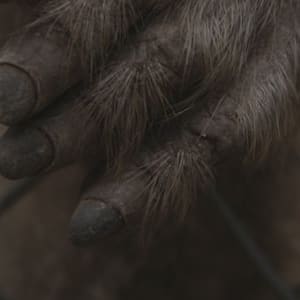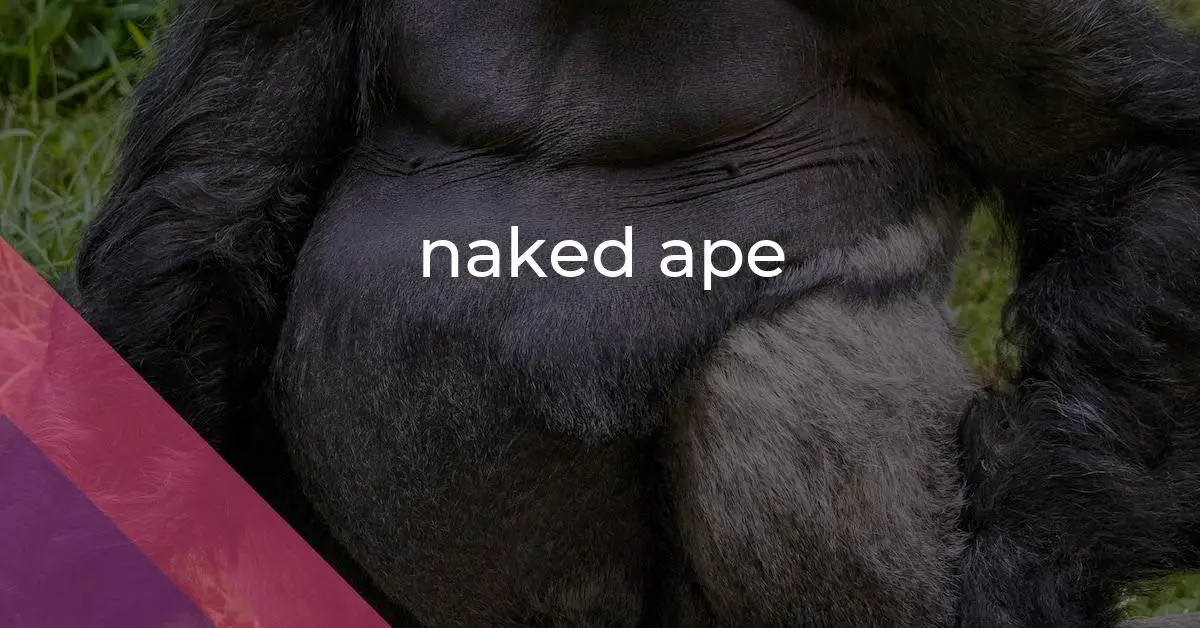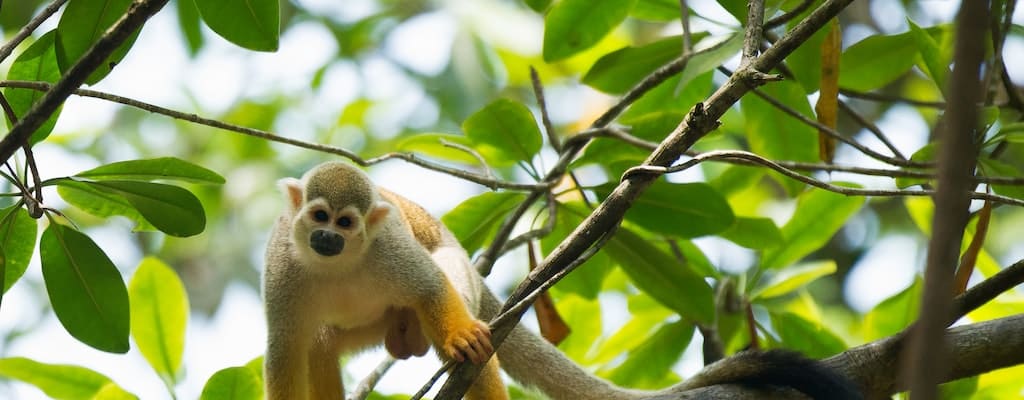naked ape: Idiom Meaning and Origin
What does ‘naked ape’ mean?
The idiom "naked ape" refers to human beings, highlighting their physical and behavioral similarities to primates. It implies our vulnerability, lack of natural protection, and primal instincts.

Idiom Explorer
The idiom "shirtless" is used to describe someone who is not wearing a shirt or is without clothing on their upper body. It often conveys a sense of casualness or informality.
The idiom "put one's pants on one leg at a time" means that someone is just an ordinary person, emphasizing equality and normalcy.
The idiom "mud monkey" refers to someone who works in construction or manual labor, particularly in muddy or dirty conditions. It conveys the idea of someone who is not afraid to get their hands dirty and is skilled at working in demanding environments.
The idiom "morally bankrupt" refers to a person or organization lacking any ethical principles or values. It suggests a complete absence of moral integrity or honesty.
The idiom "monkey's paw" refers to a metaphorical object that brings about unintended consequences or misfortune when one wishes for something. It symbolizes the idea that one should be careful what they wish for, as the outcome may not be as desirable as initially thought.
The idiom "monkey business" refers to mischievous or dishonest behavior, often involving pranks or tricks. It is used to describe actions that are not serious or professional.
The idiom "monkey around" means to play or fool around in a careless or mischievous manner, often wasting time or causing trouble.
The idiom "mere mortal" refers to an average or ordinary person who does not possess any extraordinary qualities or abilities.
The idiom "meat rack" refers to a place or situation where people are widely observed or judged based on their physical appearance or attractiveness.
The idiom "man of the people" refers to an individual who is relatable and well-liked by the general public. This person typically exhibits qualities of being down-to-earth, approachable, and in touch with the concerns and needs of ordinary people.
Surprising Origins
The idiom "naked ape" is often used to describe humans in a metaphorical sense, highlighting their evolutionary connection to other primates and their unique characteristic of being hairless compared to their primate relatives. This idiom originated in the field of zoology, specifically in the study of primates.
Desmond Morris, a British zoologist and ethologist, popularized the term "naked ape" in his groundbreaking book of the same name, which was published in 1967. Morris used this idiom to capture the essence of human behavior and evolutionary biology, making it accessible and relatable to the general public.
The idiom "naked ape" suggests that despite the complexity of human society, humans are still fundamentally similar to their primate ancestors. By comparing humans to apes, this idiom highlights the shared traits and behaviors that exist between the two, shedding light on the primal instincts and innate drives that underlie human behavior.
The metaphorical use of "naked" in this idiom emphasizes the absence of fur or hair on humans, setting them apart visually from other primates. This physical characteristic is a significant aspect of human uniqueness, reminding us of our biological connection to other primates.
Furthermore, the metaphorical association of humans with apes suggests a certain vulnerability and exposure. The lack of protective fur leaves humans more exposed to the elements, emphasizing their reliance on clothing and other man-made technologies for protection. This metaphorical exposure can extend beyond the physical realm, symbolizing the rawness and transparency of human nature without pretensions or disguises.
The idiom "naked ape" has permeated popular culture, finding its way into various literary works, films, and artistic representations. It has become a shorthand expression to capture the primal aspects of human behavior and identity.
One related idiom to consider is "in the buff." This expression is often used to describe someone who is completely naked. The metaphorical use of "naked" in this idiom aligns with the idea of humans as "naked apes" - vulnerable and exposed without the protection of clothing or disguises.
Another related idiom is "half-naked," which refers to someone who is only partially clothed. This idiom reflects the way humans, as "naked apes," rely on clothing to protect and cover themselves, highlighting the vulnerability and exposure that comes with being only partially covered.
Another idiom to consider is "ape leader," which is not directly related to the concept of a "naked ape." However, it does highlight the connection between humans and apes. An "ape leader" could be seen as a metaphorical leader who embodies some of the primal instincts and behaviors associated with apes, such as a strong and dominant presence.
The idiom "in the nip" is another related expression. It is often used to describe someone who is naked or wearing very little clothing. Similar to "in the buff" and "half-naked," this idiom aligns with the metaphorical vulnerability and exposure of being a "naked ape" - devoid of clothing or disguises.
The idiom "naked ape" encompasses the evolutionary connection between humans and other primates. It highlights their physical similarities, vulnerabilities, and primal instincts. This metaphorical expression serves as a reminder of the underlying truths of human nature that persist throughout our evolution. So remember, next time you hear someone say "in the buff," "half-naked," "ape leader," or "in the nip," they are subtly referring to the concept of humans as "naked apes."
Example usage
Examples of how the idiom "naked ape" can be used in a sentence:
- The scientist referred to humans as "naked apes" to emphasize our close evolutionary relationship with other primates.
- During the heatwave, the sunburnt tourists resembled naked apes as they sought shade under any available tree.
- In his book, the author humorously described the chaos of a crowded train station as a gathering of naked apes in a zoo.
More "Anthropomorphism" idioms
We missed the mark - nothing found.



